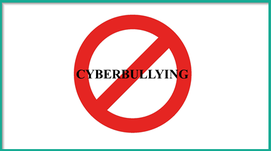
- Know for how long the arguments have been going on - It’s one thing to care for your kid - and it’s quite another to interfere with how (s)he interacts with his/her peers at every point. At the very outset, you need to find out whether someone has indeed been bullying your child for weeks - or whether (s)he is simply having a fight with an otherwise good friend.
- Advise your kid to not get into a war of words - If someone is intent on bullying another person over the web, retaliation is only going to encourage him/her further. In fact, such name-calling and prolonged exchange of chat messages/texts/emails would only worsen the situation - and would have an adverse effect on your kid's concentration and general behavior. The best way, in most cases, is to not respond at all to any such hurtful bullying messages.
- Find out whether personal accounts have been hacked - The World Wide Web promises anonymity - which, in turn, has made it an absolute haven for those with shady intentions. In fact, this has been one of the flipsides of new-age Android and iPhone app development as well. If you are aware that your kid is facing a cyber issue, tell him/her to repeatedly check for signals that might indicate that his/her email account(s) and/or social media accounts have been hacked into, such as sent messages that weren't written by them. A child should never ever share personal account passwords with even his/her best buddy at school. Cyber impersonation can have serious consequences.
- Encourage your child to stand up for him/herself - Maybe not immediately, but help your child to gain the confidence to put up a strong stand. Tell your son/daughter to categorically state to the bully that such irritating/threatening behavior will not be tolerated. Ideally, such warnings should be sent via email, and CC'd to parents and school administration. If you handle the situation in person, it might be better to have adults present as well, there’s no saying when things might turn violent if an aggressive bully becomes angry.
- Keep a record of the bullying messages - The bullying messages on mobile apps, web hangouts and virtual chat rooms may be disgusting - but they should not be deleted in a fit of anger. If an official report against the offending person has to be lodged to the school/college authorities, these messages would serve as conclusive proof. Advise your kid to not participate in any chats that have been ‘taken off the record’.
- Be a moral support to your kid - Being subjected to the antics of hurtful cyberbullies for long periods can be grossly demoralizing for kids. (S)he might even start thinking that such mental harassments are, in some twisted way, deserved by him/her. As a caring parent, the onus is on you to make your child know that such is not the case. Cyberbullies are nothing more than petty cowards and criminals - and they deserve to be punished. Why should your child feel guilty and downcast because of them?
- Block the bully - Instead of receiving (and tolerating) foul-mouthed messages from the same old bully, it is a much better idea to get that person out of your kid’s virtual world. Advise your son/daughter to ‘unfriend’ bullies on Facebook and other social networks, block their contact numbers on phones, and get out of the chat rooms where such pre-identified bullies are present. If responses become less and less frequent, the offender is likely to lose interest in continuing his/her nefarious online activities. On most advanced mobile apps for kids with social networking options, there are provisions to block users.
- Teach your child to handle messages from unknown senders smartly - If your kid receives an email message from an unknown sender - (s)he should ideally delete it, without even bothering to open it (since the mail might contain virus and malware links). At times, such messages - although abusive in nature - might seem funny to a young child. Advise them to never forward/circulate such mail among others, or participate in chain mail. You don’t want your kid to unwittingly start spreading a virus or hurtful material.
- Know when legal help is required - Reporting cyber abuse to your kid’s teachers is almost always necessary. However, if the bully starts sending physical threat messages, starts sharing obscene pictures of your child on social media, and begins to post lewd comments - it’s high time you got in touch with the legal authorities. Do not dismiss such activities as light-hearted acts of young people. In most countries, the laws against cyberbullying are strict, and rightly so.
- Your kid should stay away from interacting with people reluctant to reveal their identity - You have a young child, and, quite naturally, (s)he would be eager to make friends with other kids in the same age group online. However, you need to remember that just because someone on the other end of a conversation is saying that (s)he is of a certain age does not necessarily mean that (s)he is speaking the truth. Even while using trusted chatting software and networking applications from leading mobile app companies, it is best to stay away from absolute strangers.
As a parent, it is your responsibility to find out whether your child is facing any form of cyberbullying. And advise your kid to be careful about expressing strong opinions on sensitive issues, which might instigate people who have opposing thoughts. Cyberbullying is a growing trend across the world and has, unfortunately, increased in recent years. But, by following these tips, we can begin to put a stop to it and help those who are likely to be harmed.
Author’s Bio:
Ross Smythe is the chief concept developer at Teknowledge Mobile Studio. He regularly writes on the web, specifically about various issues related to education technology.












